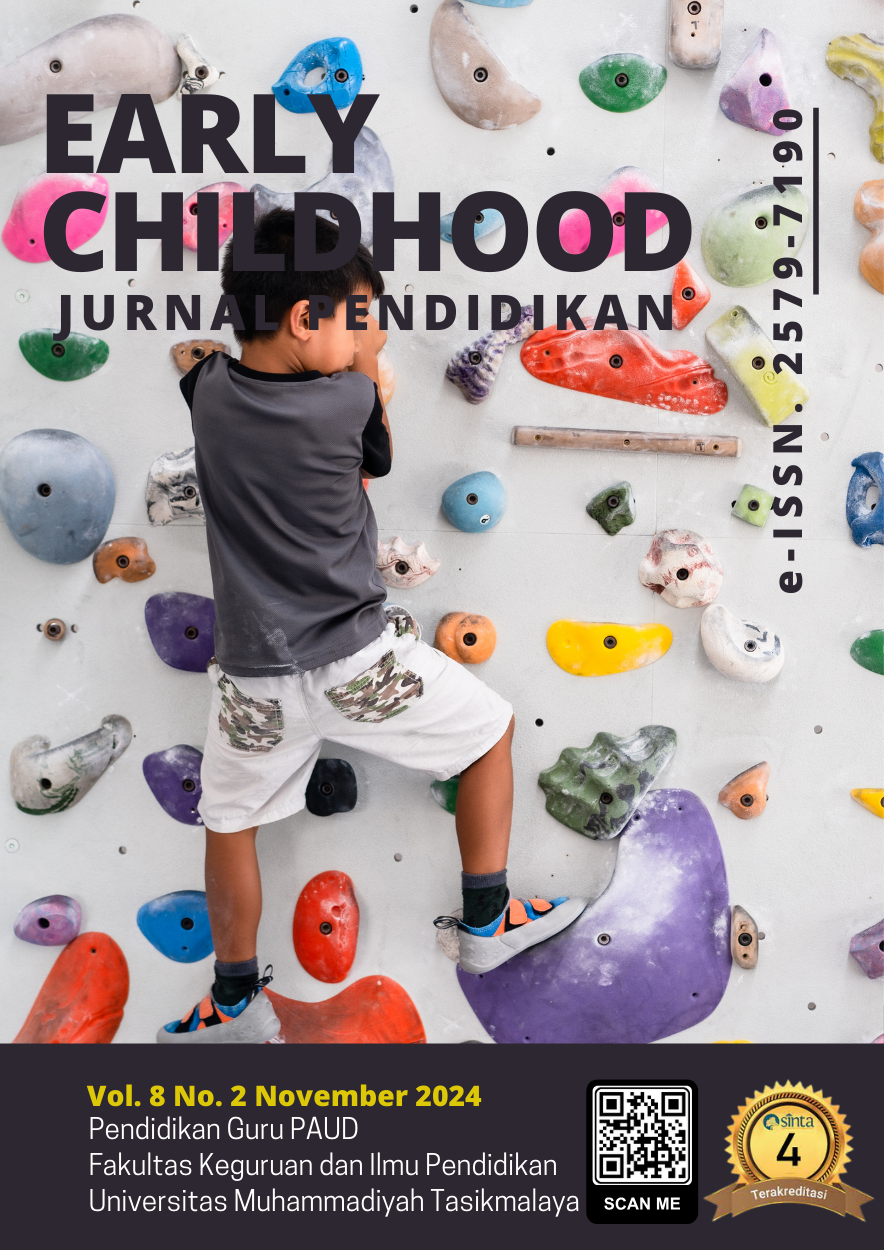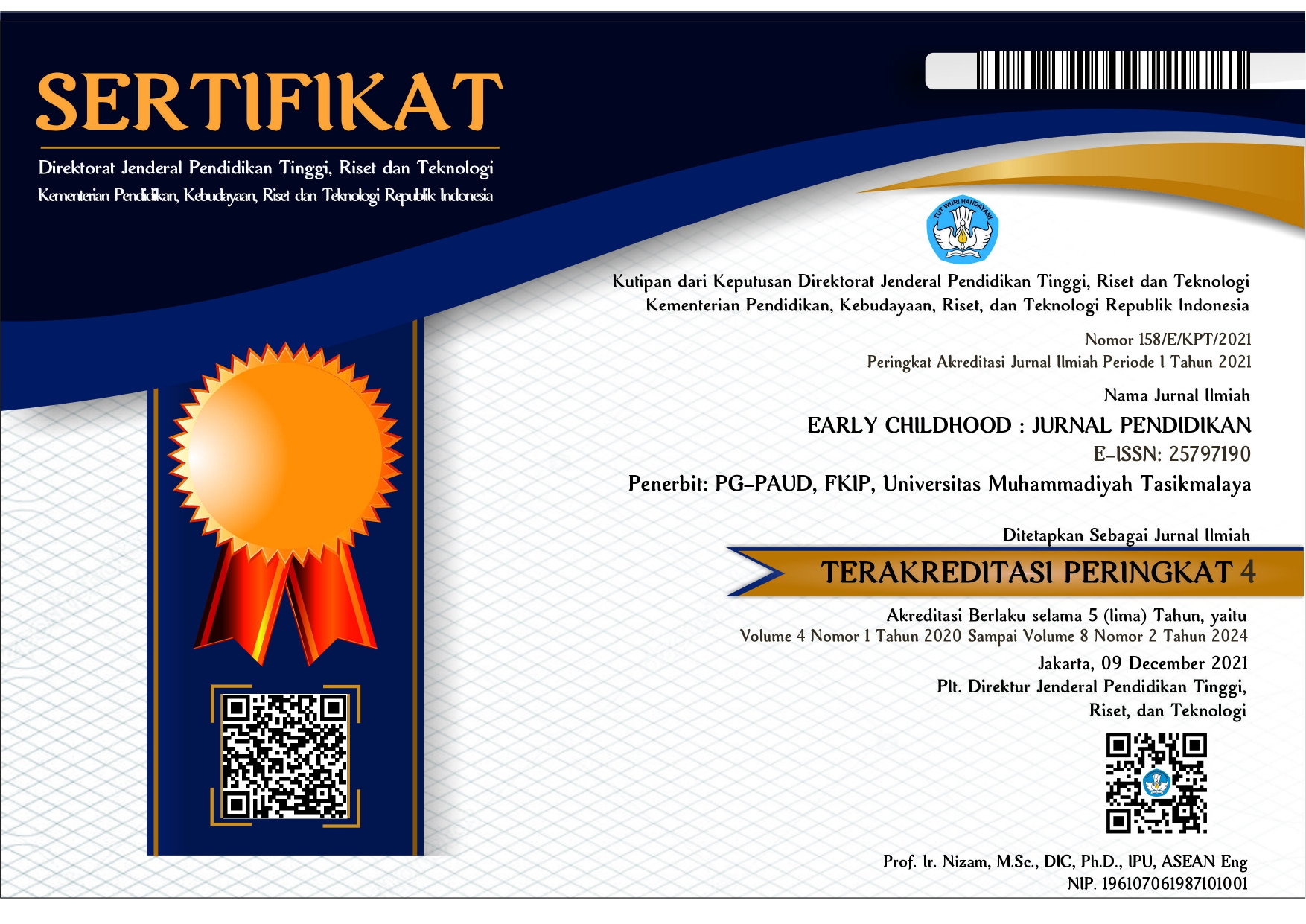PENDEKATAN HYBRID SELF TRAINING DALAM PENGEMBANGAN SOSIAL-EMOSIONAL ANAK USIA DINI
DOI:
https://doi.org/10.35568/earlychildhood.v8i2.5406Kata Kunci:
Hybrid Self Training, Sosial-Emosional, Anak Usia DiniAbstrak
This study explores the potential of the Hybrid Self-Training approach in the social-emotional development of young children. Employing a library research method, this investigation analyzes the concept, implementation, potential advantages, and challenges of this approach. The findings indicate that Hybrid Self-Training integrates play-based learning, responsive scaffolding, metacognitive reflection, digital technology, and contextual learning. Potential advantages include learning personalization, enhancement of intrinsic motivation, development of metacognitive skills, integration with academic learning, and adaptability to digital contexts. Implementation involves stages of initial assessment, learning environment design, facilitation of play-based activities, responsive scaffolding, reflection and feedback, technology integration, as well as continuous evaluation and adjustment. Identified challenges encompass the need for educator training, balance between freedom and structure, assessment complexity, resource limitations, and variations in children's readiness. This research concludes that Hybrid Self-Training has significant potential to optimize the social-emotional development of young children, yet requires a comprehensive and adaptive approach in its implementation. This study contributes to the theoretical and practical understanding of innovative approaches in early childhood education, while highlighting areas for further research.
Unduhan

Unduhan
Diterbitkan
Terbitan
Bagian
Lisensi
Copyright Notice
Early Childhood Journal is an Open Access Journal. The authors who publish the manuscript in this journal agree to the following terms:
This work is licensed under a Creative Commons Attribution-NonCommercial-ShareAlike 4.0 International License.
Privacy Statement

The names and email addresses entered in this journal site will be used exclusively for the stated purposes of this journal and will not be made available for any other purpose or to any other party. Early Childhood allows the author(s) to hold the copyright and to retain publishing rights without restrictions.




